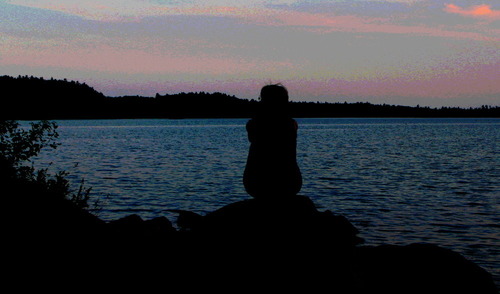CREATIVITY UNDER SEIGE? FIND YOUR SOLITUDE
/
I thought of most of this post while on a power walk for exercise. Alone.
Quiet. Solitude. Time to think.
I had my iPhone with me, but since I give the number out to very few and have almost all notifications turned off, it gave nary a bleep the whole time, and I didn’t expect it to. There is no question that most of my creative ideas come to me when I’m alone: going for a walk in a quiet forest, sitting by the shore of a lake, or settling in for a nap. I depend on it. Heaven forbid that my phone interrupt moments like that. Especially the nap.
A CBC Radio program called Spark touched on this subject recently. Research psychologist Dr. Larry Rosen found that people admit to checking in with their phones every fifteen minutes. I suspect they’re understating their actual use. When we’re instantly notified of every single email, Facebook post, tweet, or IM message sent our way, we can’t resist the urge to check—we get anxious that we might have missed something important. It’s a wonder we can ever complete an original thought. The same Spark episode also featured author Michael Harris whose book The End of Absence is about the loss of silence and solitude, daydreaming, and the opportunities to just be alone with our thoughts. From such moments come the great leaps of intuition that advance science, the arts, literature, and so much more. How would Newton have discovered gravity if, just as the apple was falling toward his head, he’d leaned to the side to read a tweet?
This state of affairs worries me because I only see us becoming more connected as time goes on. Before many more years have passed, our brains will interface directly with computerized augments, whether implanted or attached, which will give us non-stop internet access so completely integrated with our thought processes that we’ll find it difficult (and unnecessary) to distinguish between a search of our own memories and the World Wide Web. I’m in the polishing stage of a novel about that prediction, although it’s set in the early days of that revolution and doesn’t deal with the long term implications all that much.
Imagine full-time brain-to-internet connectivity. How will it be possible to experience solitude then? How will we even cope with all of the distractions? I’m afraid that sparks of genius could be extinguished beneath a flood of constant input. True progress could sputter to a halt.
Fortunately, I think there will always be those who cherish the company of their own thoughts and will reject, at least sometimes, the constant connection to informational stimulus. They’ll embrace occasional solitude and refill the well of ideas that keeps our species moving forward. There could even be a whole new market idea for wilderness resorts: the Internet-free Creativity Zone.
I’m tempted to try this with my waterfront cottage property, and charge big rent to the next Einsteins and Darwins—for the benefit of us all, you understand.

